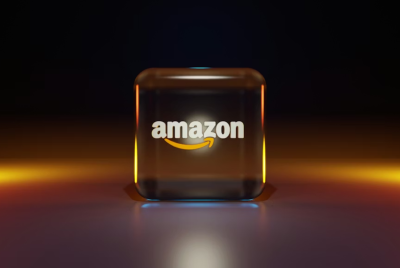Pop Mart CEO Says $4.2b Target Will be 'Easy' With New Mini Labubu Craze Set to Sweep the Globe
With profits soaring and Mini Labubu collectibles going viral, Pop Mart's CEO predicts a record-breaking year, fuelled by mobile charm mania and international expansion

Chinese toy giant Pop Mart is surfing an unprecedented wave of global demand, with CEO Wang Ning confidently declaring that the company's ambitious 30 billion yuan ($4.2 billion) revenue target for 2025 will be 'quite easy' to achieve following a staggering 397% surge in first-half profits.
The bullish forecast follows the Beijing-based company's record-breaking results on Tuesday, with revenue tripling to 13.88 billion yuan ($1.91 billion) for the six months ended June 2025. The explosive growth has been driven mainly by the viral success of its flagship character, Labubu, and the imminent launch of a miniature version explicitly designed for mobile phone accessories.
From Blind Boxes to Global Obsession
Pop Mart, known for its blind-box toys, which feature sealed packages that conceal the character a buyer will receive, has transformed niche collectables into a mainstream phenomenon.
The company's most iconic creation, Labubu —a mischievous rabbit-like figure with jagged teeth and pointed ears —has become a viral sensation.
Originally part of 'The Monsters' series by Hong Kong illustrator Kasing Lung, Labubu now dominates Pop Mart's sales, accounting for over one-third of total revenue in H1 2025.
The character's popularity has exploded beyond China, with celebrities such as Rihanna, Kim Kardashian, and Lisa from BLACKPINK spotted with Labubu-themed merchandise. Pop Mart's global expansion has been rapid, with sales in the Americas surging over 1,000% year-on-year, reaching 2.26 billion yuan ($310 million) in the first half alone.
Breaking Records Across All Metrics

Pop Mart delivered a staggering performance in the first half of 2025, reporting 13.88 billion yuan (£1.44 billion) in revenue, representing a 204% year-over-year increase. Net income surged 397% to 4.57 billion yuan (approximately $640 million), far surpassing analyst forecasts.
CEO Wang Ning, during a live-streamed earnings call, confidently stated that reaching 30 billion yuan ($4.2 billion) in annual revenue 'would be quite easy,' signalling continued momentum. Investors responded swiftly, sending the company's stock up over 6% following the announcement.
Year-to-date, shares have climbed more than 227%, reflecting strong market confidence in Pop Mart's brand strategy and global expansion. Much of the growth is attributed to the viral success of its Labubu character and strategic retail footprint across Asia and beyond.
With consumer demand soaring and digital engagement driving sales, Pop Mart is positioning itself not just as a toy retailer but as a cultural phenomenon redefining the collectables market.
Mini Labubu Signals Next Growth Phase
Pop Mart's latest innovation is a miniature version of Labubu, designed to be attached to mobile phones as charms. The company believes that this new format will further enhance its global appeal, particularly among younger consumers and collectors in emerging markets.
Executives have confirmed plans to expand into Central Europe, South America, and the Middle East, with Wang stating: 'I think for overseas markets we're still very positive, and we also believe there's still inclusive space for growth.'
In the United States, Pop Mart currently operates around 40 stores, with an additional 10 expected to open by the end of the year. The company is also exploring rapid store openings across the Asia Pacific and Latin America.
Navigating Risks Whilst Riding High
Despite extraordinary momentum, analysts urge measured optimism. Morningstar's Jeff Zhang, however, cautioned that valuations may have outpaced fundamentals. 'We expect more restocking of existing series and the launch of new editions to drive earnings expansion in the second half. That said, shares likely remain overpriced as investors are overlooking the high business risk in the long run,' he said.
Pop Mart's reliance on trend-driven consumer behaviour and the inherent unpredictability of blind-box demand could pose challenges should novelty fatigue set in. Nevertheless, the company's proven ability to refresh product lines consistently and tap into pop culture zeitgeists has maintained its competitive edge.
As Pop Mart positions itself not merely as a toy retailer but as a cultural phenomenon redefining the global collectables market, Wang Ning's declaration that reaching 30 billion yuan 'would be quite easy' appears less boastful than calculated confidence backed by extraordinary results.
For now, the Labubu craze shows no sign of slowing. If the Mini Labubu captures the same global imagination, Pop Mart's lofty $4.2bn target may not just be achievable — it could be surpassed.
© Copyright IBTimes 2025. All rights reserved.




















